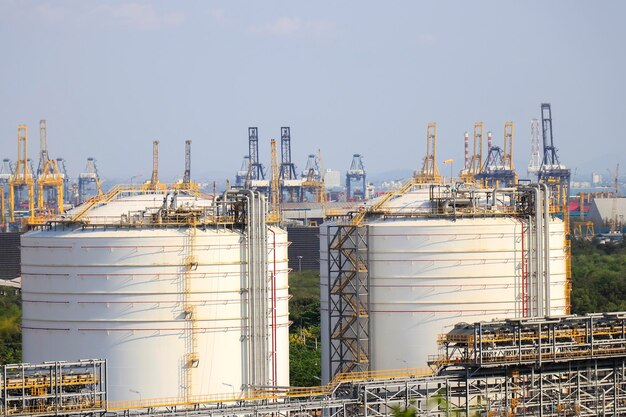10 Key Sectors That Contribute to Nigeria’s GDP

Nigeria, as Africa’s largest economy, has a diverse range of sectors that significantly contribute to its Gross Domestic Product (GDP). These sectors play a crucial role in driving economic growth, creating jobs, and enhancing the overall standard of living in the country. Here’s a look at ten key sectors that are pivotal to Nigeria’s economic landscape.
1. Oil and Gas
The oil and gas sector is the backbone of Nigeria’s economy, accounting for a substantial portion of the country’s GDP. Nigeria is one of the largest oil producers in Africa and relies heavily on oil exports for government revenue. The sector has attracted significant foreign investment, making it a vital contributor to the economy.
2. Agriculture
Agriculture is a cornerstone of Nigeria’s economy, employing a large percentage of the population and contributing significantly to GDP. The sector includes the cultivation of crops, livestock rearing, and fishing. Key crops such as cocoa, yams, cassava, and maize play an essential role in both local consumption and export.
3. Telecommunications
The telecommunications sector has experienced remarkable growth in Nigeria over the past decade, driven by increased mobile phone penetration and internet accessibility. This sector has not only created jobs but also improved communication and business operations, making it a critical component of the Nigerian economy.
4. Trade and Services
The trade and services sector encompasses retail, wholesale, and various service industries. With a large population and increasing urbanization, this sector has seen substantial growth. It provides numerous employment opportunities and supports small and medium enterprises (SMEs), which are vital for economic development.
5. Construction
The construction sector is another significant contributor to Nigeria’s GDP, driven by infrastructure development and real estate growth. Government investments in road, rail, and housing projects have stimulated this sector, leading to job creation and economic diversification.
6. Manufacturing
Manufacturing in Nigeria has been expanding, particularly in sectors like food processing, textiles, and cement production. The government’s push for local production through policies and incentives has encouraged investments in manufacturing, contributing to job creation and economic stability.
7. Mining and Quarrying
Nigeria is rich in solid minerals such as tin, limestone, coal, and gold. The mining and quarrying sector has gained attention in recent years, with government efforts to diversify the economy away from oil dependence. This sector is crucial for local development and job creation in mining regions.
8. Financial Services
The financial services sector, including banking, insurance, and capital markets, is essential for economic growth. It provides the necessary funding for businesses and individuals, facilitating investments and economic activities. Nigeria’s banking sector is one of the most developed in Africa, with several banks operating regionally and internationally.
9. Transportation and Logistics
The transportation and logistics sector is vital for facilitating trade and movement of goods across the country. Investments in road, rail, and air transport infrastructure have improved efficiency in logistics, supporting commerce and contributing to GDP growth.
10. Tourism and Hospitality
Though still in its nascent stages compared to other sectors, tourism and hospitality have immense potential in Nigeria. With its rich cultural heritage, natural attractions, and diverse landscapes, the sector offers opportunities for growth, job creation, and foreign exchange earnings.
Nigeria’s economy is characterized by its diverse sectors, each playing a vital role in contributing to the nation’s GDP. The oil and gas sector remains dominant, but other sectors such as agriculture, telecommunications, and manufacturing are increasingly important in driving economic growth and development. As Nigeria continues to diversify its economy, the focus on these key sectors will be crucial for sustainable growth and improving the living standards of its citizens. With the right policies and investments, Nigeria can harness the potential of these sectors to achieve long-term economic stability.



